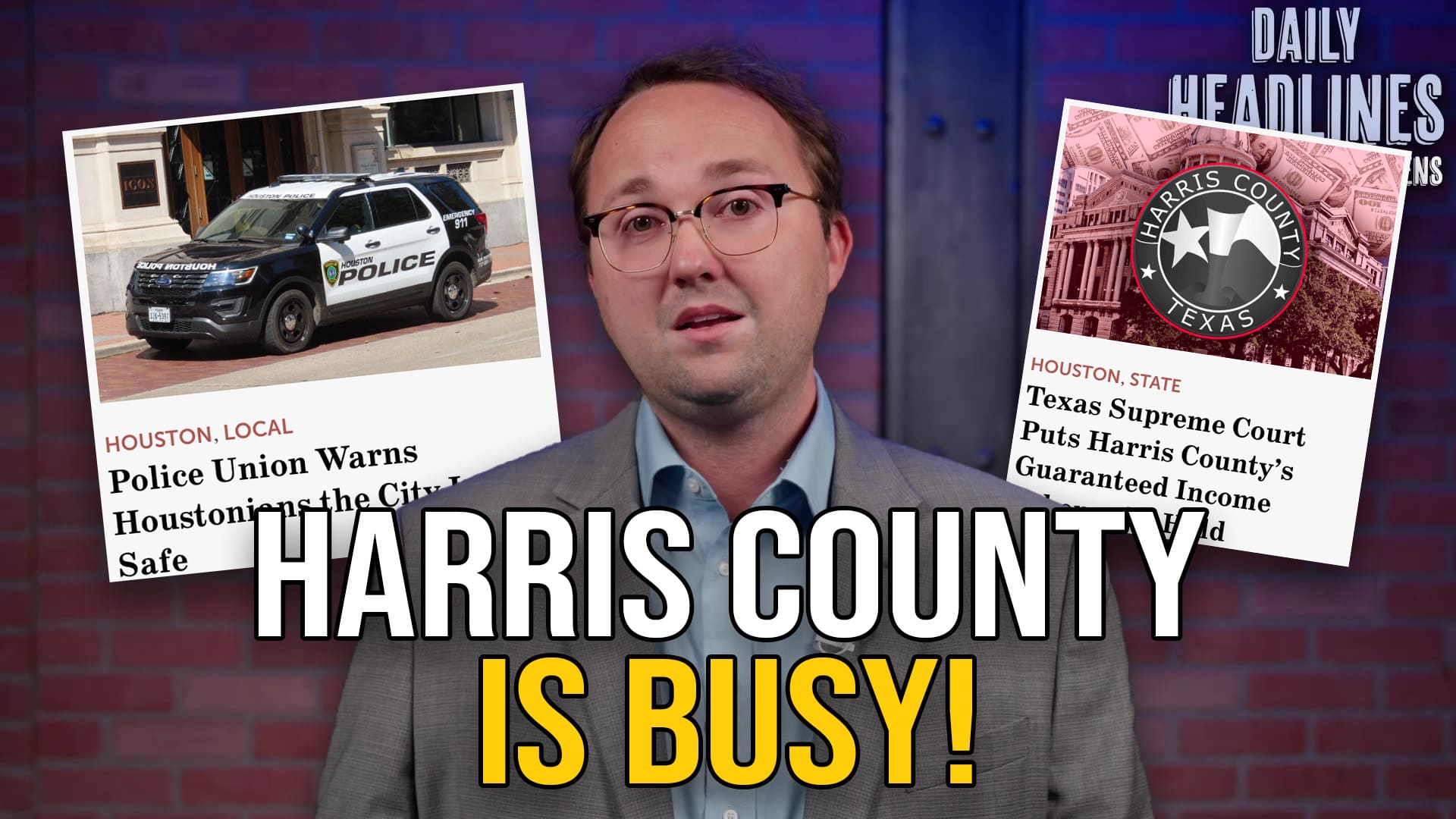Government-interest groups and some local officials continue to use tired rhetoric to justify their opposition to property tax reform. Their real motive is to aid local politicians in avoiding public accountability.
Not only are these big-government voices misleading the public on the facts, their “local control” rationale for doing so is hypocritical, un-American, and hostile to good governance.
What Would the Senate’s Proposed Property Tax Reforms Do?
Conservative lawmakers, including State Sens. Paul Bettencourt (R-Houston) and Van Taylor (R-Plano), are pushing reforms aimed at slowing the growth of property taxes levied by cities and counties. Reforming local school taxes is a wholly separate issue, since those funds are comingled with state dollars.
Reformers hope to limit excessive tax increases by empowering voters, not via legislative mandate. The most prominent measure would require that cities and counties obtain voter approval for a year-over-year tax increase above 4 percent.
Under current state law, local governments may increase their budgetary tax burden (after adjusting for changes in land values) by up to 8 percent annually on the existing tax base. If a government exceeds that limit, citizens within its jurisdiction may petition for a “rollback election” or public vote of local residents on the proposed rate.
Even if citizens are able to gather the signatures necessary to force a public vote, city bureaucrats and lawyers often fight back by challenging signatures or finding errors on the complicated legal forms. As a result, taxpayers rarely get a chance to vote on tax increases even though they are left bearing the burden.
In contrast to cities and counties, no petition is necessary for school districts that propose a tax increase. Instead, school districts are automatically required to obtain voter approval through Tax Ratification Elections for an increase of 8 percent or more.
Bettencourt’s proposal would both reduce the rate governments can increase taxes without voter-approval and make rollback elections automatic—forcing local officials to justify excessive tax increases to voters.
Why Does the Texas Municipal League Oppose Tax Reform?
Their own governing documents answer this question. TML and other tax-funded government associations exist for the sole purpose of advancing the interests of governments – including their ability to tax, spend, and borrow – not taxpayers. TML’s Constitution. Section 2.1 clearly states:
“The purpose of this organization is to advance and sustain the interests of the cities of Texas.”
TML opposes any effort to restrict a city’s ability to tax, even if the proposal is reasonable or empowers voters. This position is plainly stated in their legislative reform literature and is a fact they neither publicize nor dispute.
What’s Wrong With TML’s ‘Local Control’ Doctrine?
TML’s argument that the state should not place limits on local taxing authorities is woefully insincere on its face. If TML really believed in “local control,” they would support reforms that empower Texas taxpayers, for whom government exists to serve.
They’d also support efforts to increase government ethics, transparency, accountability, and other limited-government measures that make it easier for voters to hold officials accountable. Unfortunately, TML and their grow-government friends are often the loudest voices opposing these good-governance measures.
As a governing philosophy, the “local control” doctrine is antithetical to that of our Constitutional Republic, which exists to empower citizens and protect their rights.
What TML actually supports is local government control – the unlimited power of local politicians – not limited government. This un-American and un-Texan philosophy explains why TML opposes the idea of obtaining voter approval for tax hikes, because they openly oppose any effort to restrict a government’s taxing power—even if that restriction comes from local taxpayers.
Why Does the State Place Limits on Local Governments?
Officials at both the state and local level have strict limits on their power. This constitutional system of limited government is essential to protecting the civil and economic freedom of all Texans from both tyrannical governments and voting majorities.
As stated in the Texas Constitution, governments are instituted to “protect and secure the liberties and rights of the people.” They don’t exist to lord over Texans in any way they see fit, so long as a local council’s majority passes an ordinance.
Not only does our system protect the individual from governmental abuse, it also protects minority groups from the tyrannical whims of the majority. The “local control” doctrine does neither.
A local voting majority does not have the power to violate state law or violate the rights of individuals. For example, a majority of a city’s voters cannot declare their community a “gun-free zone.” Such an ordinance would violate the state’s gun laws and Texans’ constitutionally protected rights. But the “local control” doctrine would sanction this abuse.
Furthermore – from a legal perspective – the authority of every locality in Texas is constitutionally granted to it by the legislature under Article 11. The limit of these powers, therefore, is wholly subject to the lawful discretion of state lawmakers. The ”local control” doctrine conveniently ignores this reality.
It should come as no surprise that government associations are hostile to the best interests of Texans. Their “local control” rhetoric is little more than an attempt to protect local politicians from what they fear most – public accountability.




